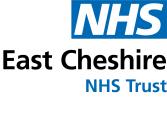
Macclesfield District General Hospital has become the first hospital in the UK to be given an Autism Access Award by the National Autistic Society (NAS), the UK’s leading charity for people affected by autism.
The accolade is in recognition of East Cheshire NHS Trust’s extensive efforts to make the hospital more accessible for patients with lifelong developmental disability, which affects around 700,000 people in the UK.
Autism impacts how a person communicates with others and relates to the world around them. As a result, under normal circumstances, a visit to the unfamiliar environment of a hospital can be an incredibly challenging and distressing experience for someone with the condition.
To make Macclesfield Hospital more accessible, the trust took various steps, including the creation of an autism-friendly ‘quiet route’ into the hospital, which gives full access to the building but with fewer distractions and people along the way.
The trust also developed a new ‘autism link practitioner’ role – a named contact whose job it is to support autistic patients ahead of treatment in Macclesfield Hospital and make any reasonable adjustments they might need to aid their visit. To date, over 90 employees have become link practitioners.
Modules in autism awareness have also become part of the mandatory training for the hospital’s clinical staff, with more than 1,000 staff now trained, and the trust has consulted closely with local autism support groups. The improvements stem from a project called ‘Open 2 Autism’, which the trust introduced in February 2013 following the efforts of staff member Lil Rimmington.
The Autism Access Award was presented to the trust’s executive and non-executive directors by Robert Pritchett, Director of Autism Accreditation at the NAS, and NAS Trustee Pamela Reitemeier at a celebratory event at the hospital on Thursday, May 29th 2014.
East Cheshire NHS Trust Chief Executive John Wilbraham said: “We are delighted that Macclesfield District General has become the first hospital in the UK to receive the Autism Access Award. We are committed to making our services as accessible as possible to all those who use them and this is a great endorsement of our efforts.
“The award also shows how empowered staff can play a vital role in the shaping of services as staff members, supported by our ‘Your Voice; Listening into Action’ employee engagement programme, led this project from the start.”
East Cheshire NHS Trust Medical Director Dr Robert Stead added: “As a trust we strive to achieve equal health outcomes for all our patients, so I am very pleased that the National Autistic Society has endorsed our efforts to make the hospital more accommodating to people with autism.”
Robert Pritchett, Director of Autism Accreditation at the National Autistic Society (NAS), said: “We’re absolutely delighted to grant the Autism Access Award to Macclesfield District General Hospital – the first ever hospital to be given this accolade. Staff at the hospital and the wider trust have gone above and beyond our expectations in their efforts to collaborate with us and make the hospital experience more accessible for people with autism.
“People with a disability can find it difficult getting out and about. Even day-to-day activities such as shopping or using public transport can cause considerable confusion and anxiety, so a trip to the hospital can be totally overwhelming.
“There is emerging evidence that people with autism have poorer health outcomes than the general population, so it is vitally important that their use of health services is made as straight-forward as possible. Training and awareness can make a huge difference and we’re hopeful that many more organisations and facilities from across the community will follow Macclesfield’s lead and work with us to improve accessibility.”
The Autism Access Award is a best practice charter mark designed to provide assurance to individuals with autism, their families and carers that arrangements can be made to enable them to use a building or facility and that the staff of the buildings and facilities gaining this mark can both understand and adapt to the needs of individuals with autism.
Found a problem? Report it and help us to improve our website
